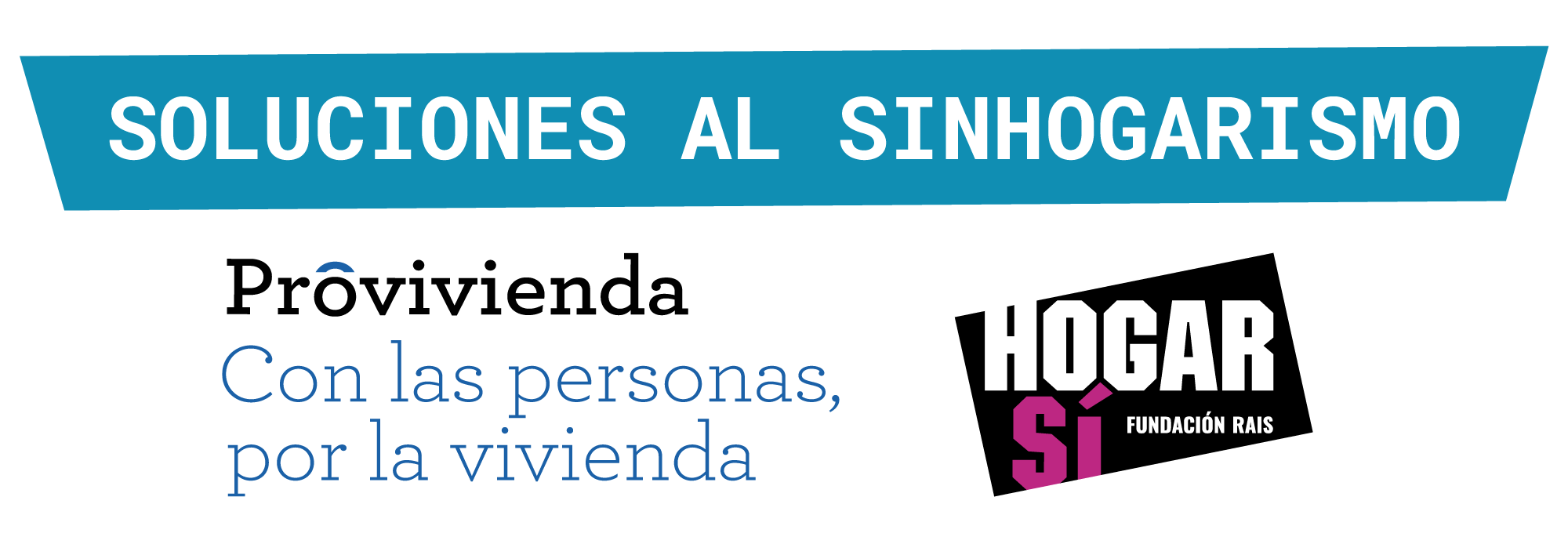- The head of the Ministry of Social Rights and Agenda 2030 visits one of the homes as part of the Housing Rights project , promoted by HOGAR SÍ and Provivienda and financed by the Ministry of Social Rights and Agenda 2030 through the Recovery, Transformation and Resilience Plan.
- The pilot project, based on deinstitutionalization, offers an innovative response to homelessness, putting housing at the center of the solution.
- The solution to homelessness requires a systemic change that transforms the care system and the commitment of all public administrations.
The Minister for Social Rights and Agenda 2030, Ione Belarra, visited the home shared by Ricardo and Plinio, participants in the Housing Rights project , promoted by the HOGAR SÍ Foundation and the Provivienda Association, which aims to implement a housing model that favors the deinstitutionalization processes of people experiencing homelessness.
During the visit, the Minister of Social Rights and Agenda 2030 was able to see how this project, financed with more than 24 million euros by the Ministry of Social Rights and Agenda 2030 through the instrument Next Generation EU, is being implemented. Next Generation EUand which also involves the participation of twelve public administrations, including the Madrid City Council, is making it possible to transform the traditional system of care for the homeless .
Both entities have experience in this transformation through Housing First, a methodology that revolutionizes the solution to homelessness that traditionally followed a staircase model of care. In that model, people had to go through steps: from the street to a shelter, from the shelter to temporary housing and, as the last step, to permanent housing. Housing First turns that model on its head and starts with housing. Housing Rights is inspired by this methodology, with one of its main objectives being to shift from traditional solutions, such as shelters or shelters, to housing. In this way, homeless people resume their lives, regaining their autonomy and independence with the help of the necessary support from housing. This represents a transformation of the traditional model of care, since it offers decent housing from the outset as a starting point for the recovery of their rights.
Upon her arrival at the housing, the minister was received by José Manuel Caballol, general director of HOGAR SÍ, and Gema Gallardo, general director of Provivienda. According to Minister Ione Belarra:
"It seems obvious that this should be the normal way of living. However, until now, the model of sheltering homeless people has been centered on building shelters where many people lived having to share a room, often without access to privacy and without the necessary support.
This project of HOGAR SÍ and Provivienda is an example of what the Ministry of Social Rights wants to do and promote. Therefore, from the Ministry we have launched the project of deinstitutionalization and the right to housing. A project that will allow us to take the first steps to advance, as soon as possible, to a model that provides the person with individual housing and professional support according to their needs and demands."
"Homelessness can be eradicated. Although this methodology of focusing the solution to homelessness on housing isstill a minority in our country, the Next Generation EU funds are an opportunity to pilot processes that bring us closer to our purpose: that no one lives on the street. At HOGAR SÍ we are proud of this pilot project because we believe that it can be a paradigm shift for the more than 33,000 people who are homeless in our country", says José Manuel Caballol, CEO of HOGAR SÍ.
Gema Gallardo, CEO of Provivienda, concludes that "the excellent results of the first Housing First evaluation in our country show that it is the perfect time to transform the homelessness care system with innovative housing solutions tailored to each person. We need to implement public policies to meet the challenges and objectives of the different strategies, such as Agenda 2030 or the European Pillar of Social Rights."
The State Law for the Right to Housing, the Comprehensive National Strategy for the Homeless and the National Strategy for Deinstitutionalization are an opportunity to transform the care system for homeless people. Placing housing as a basic pillar within our Welfare State.






